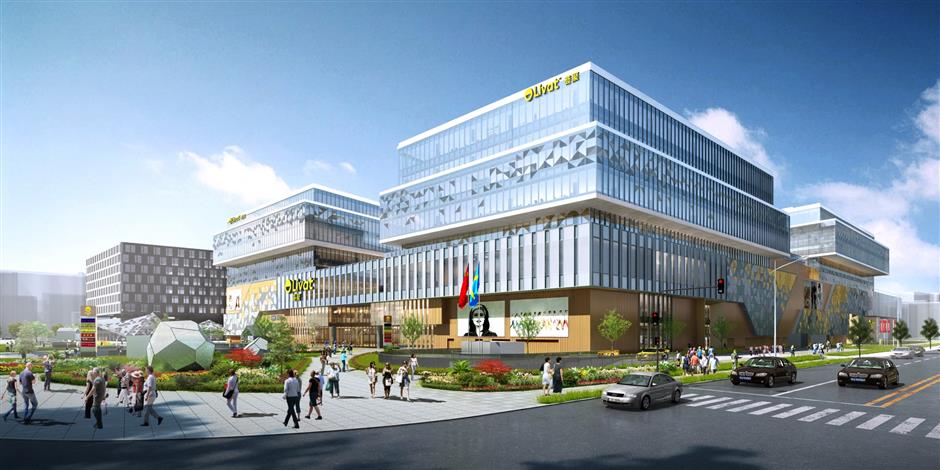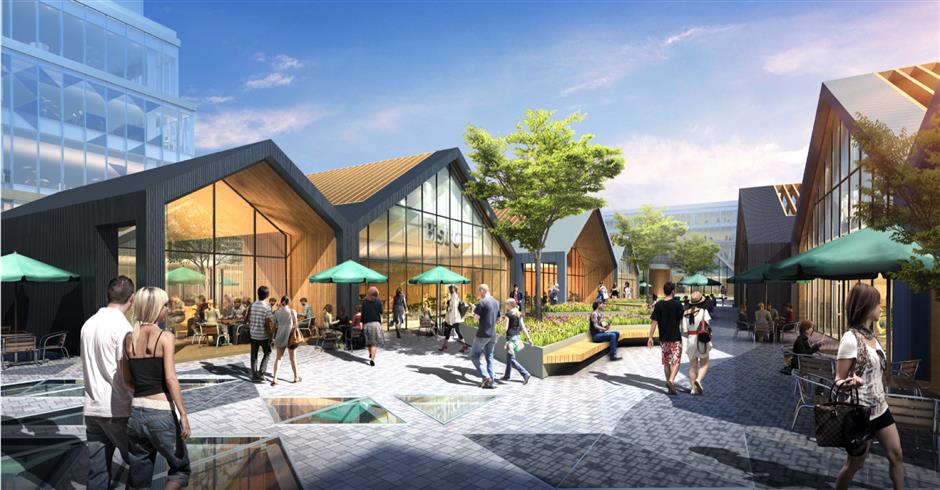IKEA parent group Ingka to unveil its most expensive property project next year
Ingka Centres, part of IKEA's parent company Ingka Group, is planning to unveil its biggest investment of a single mixed-use property project in Shanghai in the second half of next year.
With an 8-billion-yuan (US$1.1 billion) investment, the new Shanghai LIVAT in Changning District hosts five office buildings, one shopping mall, and an outdoor leisure space.

The 430,000-square-meter complex in Changning District has the biggest investment by Ingka Centres in the world and is scheduled to open in the second half of next year.
"We see continuously improving consumer sentiment and resilient rebound thanks to continuous government stimulus towards consumption," said Ingka Centres China President Joyce Zhu.
Outdoor activities, leisure lifestyles and many more functions for both dynamic and static scenarios would be included, and it would host the most trendy and fashion retailers to stay ahead of the market, she explained.
"Eight Ingka Centres in China recorded an average 29 percent annual visitor numbers growth in September, and encouraging performances during the National Day holiday," Zhu added.
The 430,000-square-meter complex would also host a wide range of community activities with seasonal elements to encourage foot traffic, not only on working days but during weekends and holidays.
In 2024, Ingka Centres plans to unveil another new shopping mall in Xi'an as well as the Shanghai property, with a total investment amount of 12 billion yuan.

The Shanghai LIVAT will adopt a simple decoration style and host around 350 retailers.
Unlike most mega cities around the world, Shanghai still attracts strong demand for retail space as consumption rebounds, a recent McKinsey Global Institute study showed, and the city retains its attraction for businesses to set up new shops.
Especially in downtown areas, retail space renovations would keep upgrading shopping and leisure experiences, associate partner of McKinsey & Company Sophia Wang said.
According to a moderate scenario modeled by the consultancy, the demand for retail space in core downtown areas in Shanghai would rise about 11 percent by 2030, and 20 percent in rural areas.
According to the study and projections, the pandemic brought challenges as well as opportunities for real estate transformation, while demand for office and retail space in most superstar cities was expected to remain below pre-pandemic levels.
The study showed there was still great potential in terms of consumption momentum, bolstered by China's increasing spending power and the rising proportion of middle class families, and higher retail spending, especially for catering, service, and entertainment.
Commercial complexes are willing to introduce new merchants and service providers, and leasing rates are gradually climbing, suggesting favorable sentiment from both the business and consumer side, Wang said.
In the first nine months of 2023, Shanghai added 996 debut stores, and fashion, lifestyle and food and beverage brands are eager to offer various kinds of consumer experiences in the city.
The third quarter marked the most busy new store opening season in the city, and shopping centers were rushing to offer new retail formats and leisure activities to diversify the shopping experience, said Zino Helmlinger, head of retail at CBRE Eastern China. Food and beverage vendors made up around 47 percent of leasing demand while fashion apparel contributed to around 24 percent of retail space leasing, according to a CBRE estimate.
